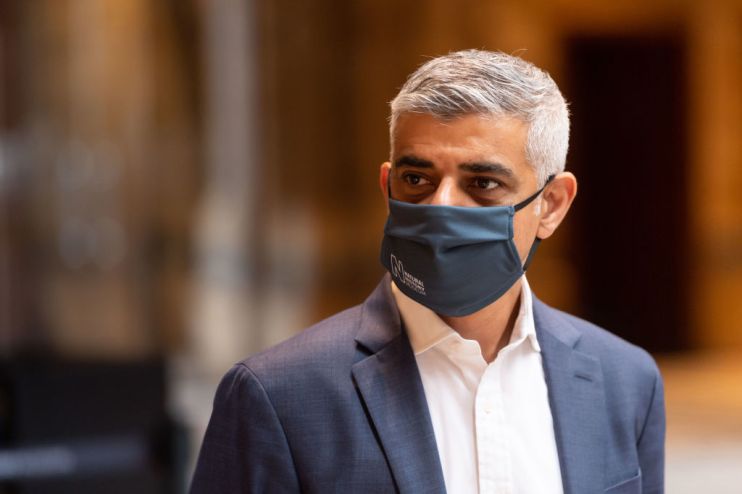Mayor 2.0: London deserves a leader who can punch at the capital’s weight

It’s more than 20 years now since we saw the creation of an elected mayor of London with executive power over the whole city.
Devised at a time of widespread devolution, public response to the role was lukewarm, with only around a third of voters bothering to express a preference either way. It was somehow inevitable that the dogged and self-certain Ken Livingstone would sweep to victory as an independent, beating the Conservative wheeler-dealer Steve Norris (remember him?) and the dejected official Labour candidate, the late Frank Dobson.
The position is now part of the constitutional landscape, taken for granted. Eight years of Ken, eight of Boris — and, if the polls are to be believed, nine of Sadiq, thanks to the postponement of this year’s contest. The mayor is the face of London, its champion and ambassador, spokesman for this extraordinary and diverse city. We tend not to think too much about it.
It takes an effort to recall, then, that the actual powers granted to the mayor by the Greater London Authority Act and other scraps of legislation are relatively circumscribed.
Three of the main aspects of policy — transport, police, and fire protection — are delivered through functional bodies like Transport for London, as is economic development. City Hall controls “strategic planning”, and the mayor acts as police and crime commissioner for the metropolis. But in the main, direct power is wielded by the 32 London boroughs and, of course, the City of London Corporation (which is guaranteed by clause nine of Magna Carta, for constitutional geeks).
The seismic shock of the Covid-19 pandemic has given almost every institution in the land cause for reflection and reassessment. It may, then, be time to ask: does the mayor have enough power to meet the capital’s needs? And, perhaps as importantly, does he have enough power to satisfy the expectations placed upon him?
The Prime Minister’s announcement of new lockdown regulations on Monday — complete with three tiers — was a case in point. London, it became clear, would not see its circumstances change, at least in the short term: bars, pubs and restaurants could stay open, but the 10.00 pm curfew would remain in force, and the “rule of six” would still apply.
Mayor Khan’s reaction, as detailed elsewhere on City A.M., was a curious one. He warned that London may face further curbs, perhaps within days, and that the epidemiological evidence was moving in the wrong direction.
For the moment, his words are effectively a dead letter — he has no powers to enforce the draconian policies he chose to articulate. But it sends out a signal nonetheless. If the mayor has a role, it is as an ambassador and a weathermaker, and Khan is bringing dark thunderheads in over London.
This isn’t good enough. We need an executive mayor with serious purpose, not an aspirant shouting from the sidelines. Rahm Emanuel, the former Obama chief of staff turned mayor of Chicago, has written a book entitled The Nation City in which he proposes that urban leaders are the future of global politics. Not so the mayor of London, not as things stand.
So what needs to change? For a start, City Hall must have proper tax-and-spend powers to reflect London’s special circumstances — its demographics, its financial base, its links with the continent and beyond — and its particular requirements.
The mayor must have the power to focus on the issues that matter most to London. Homelessness is a problem especially prevalent in the capital, so the mayor should be able to tackle it head-on. At the same time, the arts are at their most vibrant and cutting-edge here, so that too should be within his purview to support and defend.
The government has pledged to reform local government as part of its “levelling up” agenda (though it remains to be seen whether Boris Johnson and his housing secretary Robert Jenrick have the stamina and the stomach for a long, drawn-out programme of unglamorous spadework). If the changes are to be meaningful, however, they must address the powers and status of the only “national” local politician we have: the mayor of London.
When Khan meets New York’s Bill de Blasio, or Paris’s Anne Hidalgo, or Rome’s Virginia Raggi, or Mexico City’s Claudia Sheinbaum, he should not be red-faced and empty-handed as soon as conversation turns to meaningful and effective action.
London is one of the world’s greatest cities. It deserves a commensurate chief executive, one who can punch at the capital’s weight and make a difference to Londoners — and to the world.
Main image credit: Getty